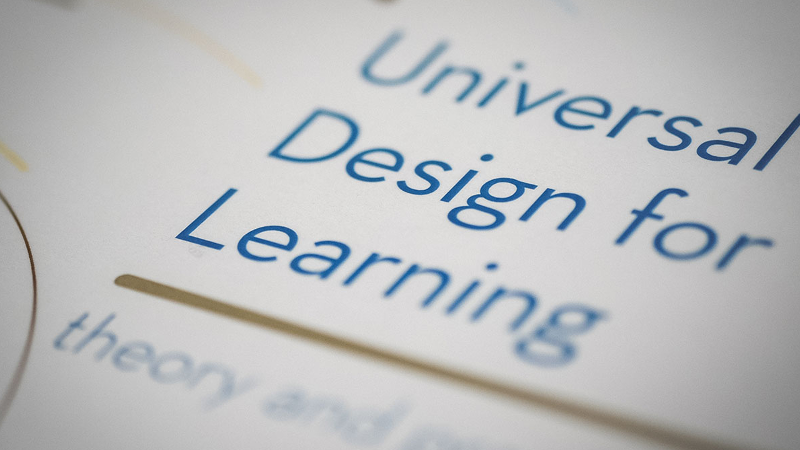UDL Theory & Practice: Moving from Printed Books to a Digital River

The Challenge
When CAST first wrote and published about Universal Design for Learning, printed books were still the dominant medium of expression and information. This always gnawed at the CAST team because printed books have numerous "disablities" as a means of learning. The fixed quality of printed text shuts off many learners who for many different reasons may struggle with print.
When it came time to write a new and comprehensive treatment of UDL with updates based on more than a decade of research and practice, we had to ask: How can we better "walk the walk" of UDL? Furthermore, we wanted this new work to reflect the collective knowledge of the field, not just what CAST had learned through its own work.
Strategies and Solutions
CAST created an online multimedia "book" that includes seven chapters of digital text on the latest neuroscience, education research, and insights from classroom practice. This multimedia environment includes learning scaffolds, such as glossaries, thought-provoking illustrations, and a full range of accessibility tools such as read-aloud capabilities.
The resource also includes "Dig Deeper" segments and detailed notes that provide an opportunity to explore the underpinnings of UDL more deeply -- but can also be easily bypassed for faster reading. More than 150 unique videos are spread throughout the seven chapters representing the voices and insights of more three dozen educators, administrators, and scholars.
Most importantly, the authors viewed this "book" as a digital river, one where the flow of ideas would go out to the field and come back in the form of commentary, suggestions for improvements, and conversation. They put out a call to initate online conversations about the book through the National UDL Center and to send comments directly to CAST. With those comments and insights, the online book can be more easily updated to reflect an ever-changing field. These voices from practice become tributaries contributing to a digital river of ideas and usable knowledge--for the betterment of all.
Success
In 2014, CAST launched Universal Design for Learning: Theory and Practice as a free online resource for the UDL field. Since that time, thousands of individuals representing preservice and in-service educators, school and college administration, education policy, and research have used this resource. They also contribute to this digital river with anecdotes, comments, and hard questions, providing guidance for future updates of the work. CAST has also published print and e-book versions of Universal Design for Learning: Theory and Practice, and thousands of users have found these to be helpful supplements to the primary online version.
In November, 2022, CAST moved the free digital version of Universal Design for Learning: Theory and Practice to our flexible and customizable learning environment, Clusive®. A new edition will be published in 2024 to mark CAST’s 40th anniversary.